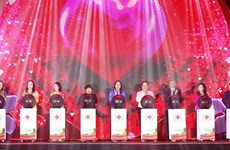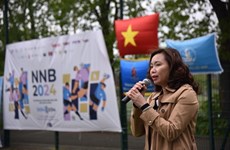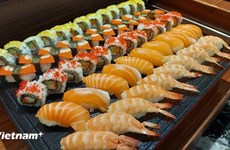Pha Bau – a unique cultural festival of the Khmer people
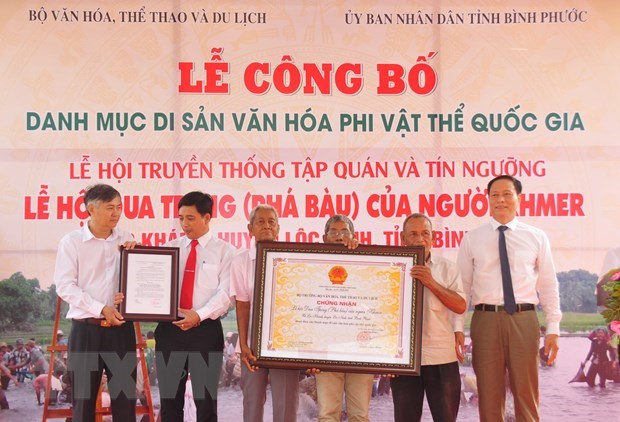 Representatives from the local administration and community receive a certificate recognising the Pha Bau Festival as part of the national intangible cultural heritage (Photo: VNA)
Representatives from the local administration and community receive a certificate recognising the Pha Bau Festival as part of the national intangible cultural heritage (Photo: VNA)Hanoi (VNA) – The ‘Pa Dua Tpeng’ Festival, also called ‘Pha Bau’ Festival, is a cultural event featuring folk performances from the Khmer ethnic community in Loc Khanh commune of Loc Ninh district, in the southern province of Binh Phuoc.
The Khmer people of Loc Khanh commune reside near natural ‘bau’ (lakes) that range from just over one hectare to several hectares in size. A lake located near a village is considered the common asset of that village’s community and the local elders manage the body of water on behalf of the community.
‘Bau’ management not only ensures a reliable source of drinking water for livestock but also conserves the lake’s aquatic wildlife - a valuable food resource for local people. They believe that resources from the ‘bau’ have been granted to local residents by the deities, so they must manage and make use of the lakes in a strict and respectful manner.
Under local law, anybody who catches fish in the ‘bau’ without permission from the elders will be dealt with severely. Khmer people select an individual to be in charge of protecting the ‘bau’ and informing the elders of the appropriate time to hold the festival. Locals are permitted to catch fish in the ‘bau’ during the ‘Pa Dua Tpeng’ Festival.
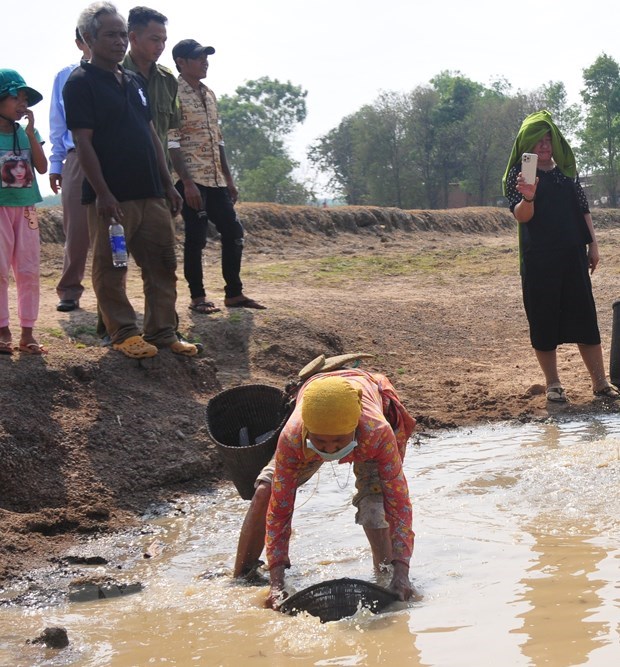 Local residents join the “Pa Dua Tpeng” Festival (Photo: VNA)
Local residents join the “Pa Dua Tpeng” Festival (Photo: VNA)The festival is often held in the third lunar month, before Chol Chnam Thmay – the traditional new year festival of the Khmer people. At this time, the ‘bau’ has dried up and the fish and other aquatic species have grown big enough to harvest and serve their purpose in the rituals of the festival and make enough food for the locals.
This traditional festival has been practised for generations of Khmer people. Previously, it was organised in different lakes like K’Poot, Sa Let, Ca Loc and Sen. However, only the festival in Loc Khanh commune has been preserved as many of the other lakes now serve other purposes.
Throughout the festival, the Khmer pray for peace, good health and a bumper crop harvest. The festival takes place at the Ong Ta Temple and around the ‘bau’ where the main rituals and festival activities take place.
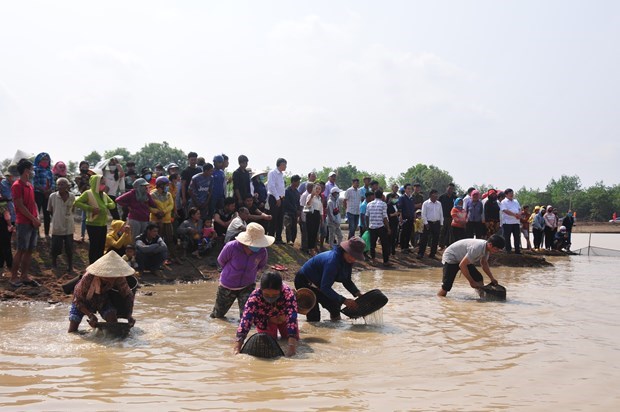 Local residents join the festival (Photo: VNA)
Local residents join the festival (Photo: VNA)Offerings to the deities include the head of a pig, raised naturally by a local family and chosen by the village elders. To join the festival, families have to prepare food and tools for catching fish. Following rituals at the Ong Ta Temple, they move to the ‘bau’ to continue with more rituals and activities as part of the festival.
At the ‘bau’, offerings are arranged to the west while the elders look eastward to perform rituals.
Those who catch big fish are believed to receive blessings. They then offer the fish to the elders as a mark of respect to elderly people and to thank them for their great contributions to the community over the years.
Fish can be cooked and exchanged by families at the festival or brought home to eat.
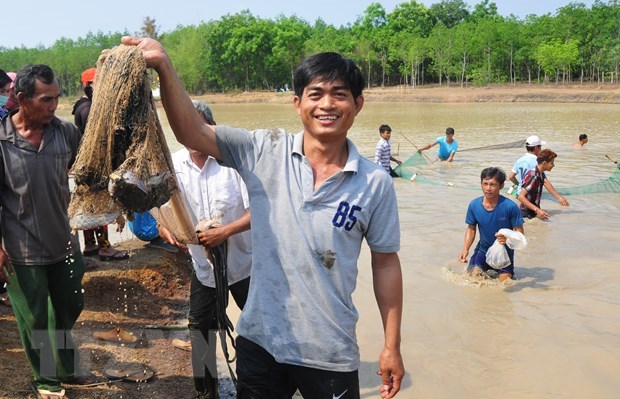 A man shows off a fish he caught at the festival. (Photo: VNA)
A man shows off a fish he caught at the festival. (Photo: VNA)After the fishing part of the festival is complete, local residents perform folk songs and dances to bring the curtain down on the celebrations.
With its typical Khmer values, the ‘Pa Dua Tpeng’ Festival in Loc Khanh commune has been recognised by the Ministry of Culture, Sports and Tourism as part of the national intangible cultural heritage.
Lam Bac, an elderly in Soc Lon hamlet, said he and the Khmer community are excited about the recognition and hope that the festival’s heritage will be preserved for many more generations.
Deputy Director of the provincial Department of Culture, Sports and Tourism Do Minh Trung said the recognition is reflective of the cultural diversity found in Binh Phuoc./.








